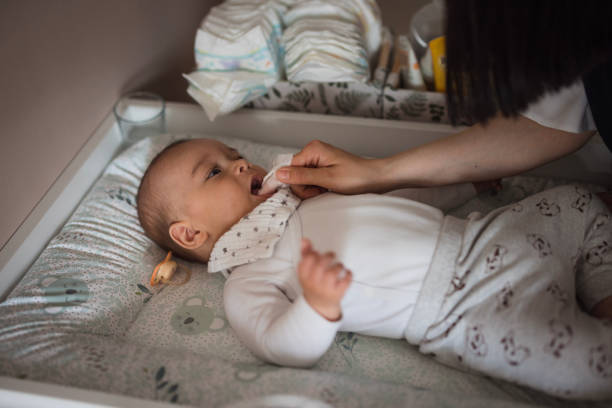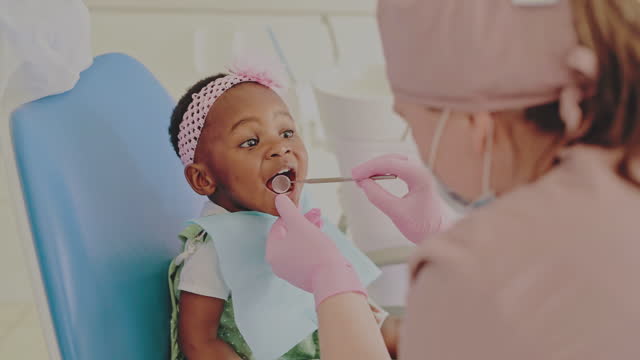Oral care is essential from the very beginning, even before your baby's first tooth appears. Establishing good oral hygiene habits early on will set the stage for a lifetime of healthy smiles. In this guide, we’ll explore when and how to start brushing your baby’s teeth, the importance of oral hygiene, and tips to make this routine enjoyable for both you and your child.
1. Start Early: Oral Care Before Teeth Erupt

Even before your baby’s first tooth makes an appearance, oral care is crucial. After feeding, gently wipe your baby’s gums with a clean, damp cloth. This removes any lingering milk or food particles, preventing bacterial growth and getting your baby accustomed to the sensation of oral care.
2. When to Start Brushing: The First Tooth Milestone

Your baby's first tooth usually erupts around six months, though it can happen earlier or later. As soon as that first tooth peeks through, it’s time to start brushing! Use a soft, baby-sized toothbrush with water and a tiny smear of fluoride toothpaste—about the size of a grain of rice. Brush gently in small circular motions to clean the tooth and gum line.
3. Establishing a Routine: Make Brushing Fun

Creating a fun and consistent brushing routine is key to maintaining your toddler’s oral health. Here are some tips:
- Brush Twice Daily: Aim to brush in the morning and before bedtime.
- Use a Special Toothbrush: Choose a toothbrush with your child’s favorite character or a fun design to make brushing more appealing.
- Sing a Song: Turn brushing into a fun activity by singing a favorite song or using a toothbrushing app to time the process.
- Lead by Example: Brush your teeth alongside your child to show them how it’s done. Kids love to imitate their parents!
4. When to Start Using Fluoride Toothpaste

Fluoride is important for strengthening teeth and preventing cavities. For children under three years old, use only a smear of fluoride toothpaste. After age three, you can increase this to a pea-sized amount. Be sure to supervise your child while brushing to ensure they don’t swallow the toothpaste.
5. Importance of Regular Dental Checkups

Schedule your baby’s first dental visit by their first birthday or within six months of their first tooth appearing. Regular checkups help monitor your child’s oral development and address any potential issues early on. Pediatric dentists can also guide you on proper brushing techniques and offer advice on diet and oral care products.
6. Oral Care Tips for Toddlers

As your child grows, they will become more involved in their oral care routine. Here are some additional tips:
- Encourage Independence: Let your toddler hold the toothbrush and practice brushing on their own, while you supervise and assist.
- Use Floss: Once your child has two teeth that touch, start gently flossing between them. You can use child-friendly floss picks to make the process easier.
- Limit Sugary Snacks: Minimize the consumption of sugary foods and drinks, which can contribute to tooth decay. Offer healthy snacks like fruits and vegetables instead.
7. Dealing with Teething

Teething can be a challenging time for both babies and parents. To soothe sore gums, offer your baby a clean, chilled teething ring or gently rub their gums with a clean finger. Keeping up with oral care during this period is important, even if your baby is fussy.
8. Transitioning to Regular Toothpaste

Around the age of six, when your child can reliably spit out toothpaste, you can switch to a regular fluoride toothpaste. Continue to supervise their brushing until they are around eight years old to ensure they are using the right amount of toothpaste and brushing effectively.
9. Setting the Foundation for a Lifetime of Healthy Smiles

By starting early and making oral hygiene a positive and consistent part of your child’s routine, you are setting the foundation for a lifetime of healthy teeth and gums. Remember, your child looks to you for guidance, so be a role model in maintaining good oral care habits yourself.
